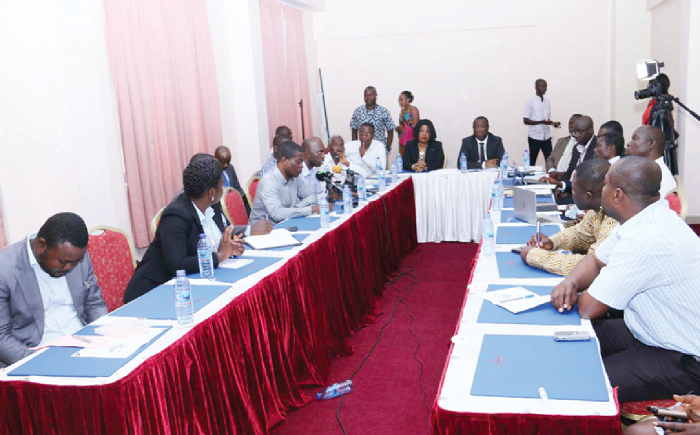
PURC blames power companies for outages
The Public Utilities Regulatory Commission (PURC) has reprimanded the power utility companies for failing to adequately address unplanned power outages being experienced by customers in parts of the country.
Not satisfied with the situation, the PURC called an emergency meeting with representatives of the Ghana Grid Company (GRIDCo) and the Electricity Company of Ghana (ECG) in Accra last Tuesday for them to clarify issues concerning power outages and the measures to address them.
Representatives of Cenit Power Company Limited and the Northern Electricity Distribution Company (NEDCo) were also in attendance.
Addressing the opening session, the Executive Secretary of the PURC, Mr Samuel Sarpong, said the commission was worried that the power providers had failed to build some systems to identify and rectify faults that were possible triggers for outages.
“As capacity issues are being addressed, outages are also increasing. How are you planning to resolve these challenges? Must we still be experiencing power outages if we have adequate power available for distribution?” he asked.
Intermittent power cuts in parts of Accra and the country are increasingly causing discomfort among the public, while some politicians are also capitalising on the issue to press home their campaign messages.
Describing the recurring power outages as unacceptable, Mr Sarpong chided the ECG, especially for failing to invest in technologies that could enable it to easily identify faults within its distribution lines.
“You must be able to project your pre-emptive maintenance beyond the short-term measures to address the challenges in the quarterly report that you often present to the commission. Until these are prioritised to include medium to long-term measures, you will come and sit with us and be repeating the same things,” Mr Sarpong said.
GRIDCo
While plants such as Sunon Asogli, Cenit Power, Siemens and the Mines Reserve are not producing, the Akosombo Hydro Dam, Kpong Thermal, Takoradi International Company (TICO) and the Karpower Ship are running.
GRIDCo, in a presentation, said with the available capacity of 2,123 megawatts (MW) for peak demand and an expected peak reach of 2,162MW, there was no way the country would be made to shed load.
“We are not shedding any load because we have more than 2,100MW. Going into the short-term, we do not expect a shortfall in supply because we are certain we will meet demand fully,” the acting Director of Systems Operations at GRIDCo, Mr Mark Baah, said.
He said the Akosombo Hydro Dam was being run on five units presently owing to a reduction in production from the Ameri Power Plant at Aboadze in the Western Region.
He also hinted that there were some 174,017 barrels of light crude oil (LCO) available to power combine-cycle plants for more than a 30-day period.
GRIDCo, he said, had carried out some maintenance works which included the substation rehabilitation enhancement project involving the upgrading of substations to increase their capacity.
“Some of these works sometimes require that we take power off the transmission lines, and this means that customers will be at the receiving end. However, owing to the crucial period within which we are, all such maintenance activities are being suspended to ensure a protection of national security,” Mr Baah stressed.
He said the shortfall in the supply of natural gas from the West Africa Power Company (WAPCo) had affected the Asogli plants, although they were in good condition to produce power.
ECG
The Director of Operations at the ECG, Mr Tetteh Okyne, for his part, indicated that the company was working to address challenges within its distribution networks.
He was of the view that with demand on the increase following the emergence of new industries, the company was seeking to establish a national control centre which would have an automatic switching mechanism in the event of unplanned outages.
Already, he said, a supervisory control and data acquisition (SCADA) control system had been installed at its Accra, Tema, Takoradi and Kumasi regions to monitor faults on its distribution networks.
“We may not be able to install across all the 21,000 transformers on our system owing to the financial burden and so we would like to encourage consumers nationwide to make use of our social media platforms such as WhatsApp, Facebook and Twitter and call centre numbers to promptly report faults, since we cannot be everywhere”, Mr Okyne said.
